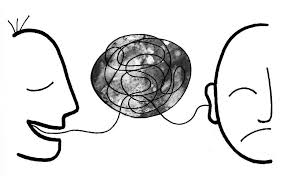We all have conversations every day.
A good conversation is like a game of catch, where there is a constant back and forth flow between the parties involved.
Unfortunately, not all of us are born natural conversationalists. We still fall victim to most common conversational mistakes from time to time.
Sometimes you can get lucky and go unnoticed, but there are also times when you can't be noticed. that the scenery is less forgiving and makes you want to disappear underground.
Like when you thought your date was talking about their child, but it turns out they were talking about a pet the whole time! (If only you paid more attention!)
Saying the wrong thing at the wrong time can keep you awake for days.
Especially on dates, when the stakes are high and it's just the two of you around. Being affable in conversation can make you affable if you understand our tendency 😉.
Fortunately, great conversational skills can be developed!
Yes! With a little practice and awareness of the list of Conversation Mistakes to Avoid, you'll be an unflappable social butterfly in no time!
Conversation mistakes to avoid to avoid awkward silences
Feigned interest

When conversing with a person we like, we can talk for hours, even days. But when it comes to meeting a random aunt or uncle at the hawker center, all you want is for it to end.
As you might expect, conversations flow more smoothly and become less stilted when you are interested in the person or at least have an interest in the topic being discussed.
The next time you feel yourself drifting away from a boring conversation, shift your attention to how the other person might be feeling, rather than simply paying attention to the surface of the conversation.
Avoiding common mistakes in conversation can significantly improve your dating. Consult our guide on the limits of sugar dating to ensure effective communication
Talking without listening

We already know that conversation is a two-way street. A person tells you something, you listen to it, you digest it, you come back with a response and the process repeats itself.
If you are only in a conversation to get your views heard and you really don't care to hear what the other parties have to say, you probably won't have anyone to talk to soon enough.
Active listening is a technique you can use to avoid doing this. common conversational error.
It is a listening pattern that keeps you engaged in a conversation by listening attentively, reflecting on what was said and biting your tongue to avoid making unwanted judgments or giving unwanted advice.
Talking about uncomfortable topics with someone new
You may be comfortable talking about your bowel movements or body fluids, but the person you are talking to may not be.
When talking to someone new, it's best to stay away from topics that are TMI (too much information) or sensitive topics such as politics, religion or health.exuality to avoid uncomfortable situations.
Don't be a know-it-all
You're not giving a Ted Talk or a lecture, you're having a conversation!
Even if you've watched a bunch of videos or read a few articles about cryptocurrencies, that doesn't automatically make you an expert on the subject.
To have more fluent and engaging conversations, review Sugar Baby's 6 tips for applicants and avoid common mistakes.
Even if you're an expert, the conversations are about giving others a chance to share their thoughts rather than being a one-man (or woman) show.
Asking too many distracting questions
Asking questions during a conversation is a good sign. Show that you are interested and want to keep the dialogue going.
However, a common mistake in conversations is also asking too many questions.
Not only does it make the conversation seem more like an interrogation, but it can also derail the person telling the story by moving the subject from one topic to another.
Do not digress
We are all guilty of rambling at times. Sometimes it's nerves or social anxiety, or both.
Ramblings usually occur when you are caught off guard, and it doesn't help if you want to get a point across because people tend to ignore you when you stop making sense.
To avoid rambling, preparation and practice will give you the confidence to express yourself better.
Next time you're the center of attention, take your time, breathe, calm down and then respond. Remember, it is good to pause briefly in a conversation because it shows that you are interested in what they have to say and that you are taking the time to think it through before responding to them.
Don't hog the limelight
Everyone enjoys talking about themselves. But unless you're preaching to someone who's in love with you, you're likely to be left talking to yourself on center stage.
When it comes to having a good conversation, leave the bragging at the door.
Even better, injects positivity into the conversation by encouraging others and giving them a boost of confidence. Positive vibes are contagious and you will leave the conversation feeling excited.
Visual contact

Eye contact is an essential part of conversations. However, there is a limit to the amount of rigorous eye contact a dialogue (or a person) can endure before it starts to seem "weird" or even distant.
General advice is Gently shift your attention from one of your interlocutor's eyes to the other. Doing this will keep you focused on the person and at the same time facilitate a natural flow.
Do not pretend
Pretending to know something you don't know in a conversation can only generate discomfort and embarrassment when the other person wants to insist on the subject.
Admitting that you don't know something doesn't make you seem any less knowledgeable. In fact, it's a great way to keep the conversation going while learning something new.
Also, you don't know how well versed your interlocutor is on the subject. Pretending and faking will only make you look foolish, while the conversation becomes obsolete.
Phones far away
You know you're engaged in a good conversation when you can't seem to remember the last time you checked your phone.
Putting the phone away during a conversation is a sign that you are engaged in the conversation. Unless it's an emergency, the buzzing and ringing in your pocket can wait!
Negative body language

Conversations are not only about the words that come out of the mouth, but also about body language.
Whether consciously or unconsciously, we sometimes give off the wrong signals with negative body language, such as crossing our arms, lack of eye contact, constantly looking around or getting too close for comfort.
Don't start an argument
Whenever someone says something that contradicts your beliefs, the most amicable decision is to agree to disagree.
Everyone is entitled to their own opinions, which are determined by their own life experiences and perspectives.
Arrogance is not something you want to include in a conversation. Be humble and keep the conversation light.
We are all guilty of at least one of the common conversational mistakes listed above, and that's okay!
At the very least, you have taken the first step in developing better conversational skills that will allow you to become aware of your conversational mistakes.
Now, all that's left is to practice avoiding these mistakes by having as many provocative and stimulating conversations as possible.






